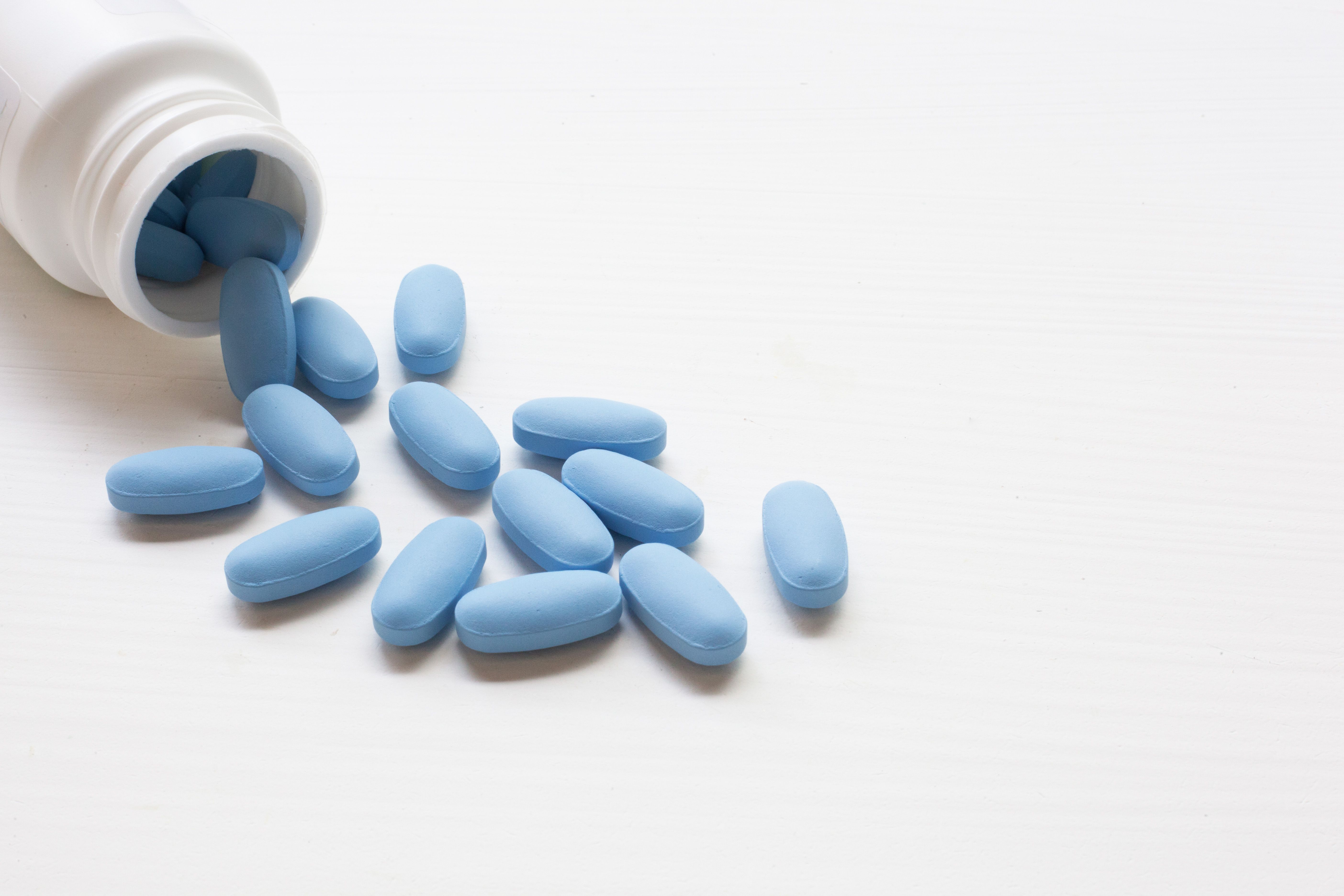Medicare Proposal Would Cover Drugs to Lower Risk of HIV Infection
The Biden administration is looking at a policy change that would enable more older Americans to get oral and injectable medications.
The federal government is moving closer to enabling more Americans to get access to drugs which help reduce the risk of HIV infection.
The Biden administration has proposed a new policy that would call for Medicare to cover the cost of preexposure prophylaxis drugs, which have been shown to lower the risk of HIV infection. (Image credit: ©Bowonpat - stock.adobe.com)

The Biden administration has proposed a new policy that would call for Medicare to cover the full cost of preexposure prophylaxis drugs, which have been shown to reduce the spread of HIV, the virus that can lead to AIDS. If the policy is indeed enacted, Americans 65 and older would be able to get PrEP drugs, as they are commonly called, at no cost. KFF Health News first reported the news.
Under the Biden administration’s proposal, the Centers for Medicare & Medicaid Services would cover both oral and injectable medications to those individuals at high risk of HIV infection. Physicians would make the determination of patients who could be considered to have greater risk of HIV infection.
CMS also proposes to cover up to seven counseling visits annually, including HIV risk assessment and to ensure patients are taking the medication properly. The proposal would also allow patients to be screened for HIV up to seven times each year.
Nearly half of all Americans living with HIV are 50 years of age or older, according to the National Institutes of Health. Many were infected when they were younger, but advances in treatment have helped many Americans to live for decades after they contracted HIV. Basketball legend Earvin “Magic” Johnson, likely the most famous American with HIV, is 64 years old. He first announced he had the HIV virus in 1991.
PrEP medications have been found to be very effective. When taken as prescribed, PrEP drugs reduce the risk of HIV infection via sex by 99%, according to the Centers for Disease Control and Prevention. PrEP drugs also reduce the risk of contracting HIV through injection drug use by 74%, the CDC says.
Despite such encouraging findings regarding the efficacy of PrEP drugs, many Americans aren’t getting them. In 2021, only 30% of those who are identified as having PrEP indications were actually prescribed PrEP medications, according to CDC data.
For many Americans, the cost of PrEP drugs remains a significant barrier to access. Researchers with Johns Hopkins surveyed patients about PrEP drugs, and many identified the price as a key issue, according to findings published in January 2023 in the journal AIDS and Behavior. Even with insurance coverage, patients could pay more than $2,000 annually in co-pays, researchers noted. That study also noted some patients are concerned about side effects.
If the Medicare policy is enacted, it could offer more equitable access to PrEP therapies. There are significant disparities in terms of access to PrEP medications, according to CDC figures.
In 2022, only 14.5% of women eligible for PrEP drugs were prescribed the medications. Conversely, 41% of men with PrEP indications received the drugs.
More dramatic gaps can be found among racial groups. In 2022, 94% of white patients found to be eligible for PrEP drugs actually received prescriptions, while only 12.8% of Black patients with PrEP indications got the drugs. About a quarter (24.4%) of Hispanic patients eligible for PrEP medications received prescriptions.
The FDA approved the first oral PrEP medication, Truvada, in 2012, and in 2019, regulators signed off on Descovy as another PrEP option. The FDA signed off on the first injectable PrEP, Apretude, in late 2021 and it became available in 2022. Patients receive the injection once every two months.
Leisha McKinley-Beach, CEO of the Black Public Health Academy, told KFF Health News that the Medicare proposal to cover injectable PrEP would make it easier for women to be protected, as opposed to having to take a pill every day.
An estimated 1.2 million Americans have the HIV virus, according to the U.S. Department of Health & Human Services.
With its “Ending the HIV Epidemic in the U.S.” initiative, the federal government has set a goal of reducing new HIV infections by 75% by 2025 and 90% by 2030. Advocates say ensuring wider access to PrEP medications is a critical step in reaching that goal.
Lenacapavir HIV PrEP: Not an AIDS Vaccine, but Vaccine Adjacent
June 19th 2025Experts and advocates say that twice-a-year HIV PrEP injections have the prevention potential of a vaccine — and that a once-a-year version of lenacapavir would be even better. But will Yeztugo be available to the people who would benefit most from HIV PrEP?
Read More
In this episode of the "Meet the Board" podcast series, Briana Contreras, Managed Healthcare Executive editor, speaks with Ateev Mehrotra, a member of the MHE editorial advisory board and a professor of healthcare policy and medicine at Harvard Medical School. Mehtrotra is also a hospitalist at the Beth Israel Deaconess Medical Center in Boston. In the discussion, Contreras gets to know Mehrotra more on a personal level and picks his brain on some of his research interests including telehealth, alternative payment models and price transparency.
Listen
Trump Budget Axes CDC HIV Prevention, Shifts Care, Experts Warn of Risks
June 10th 2025Although some HIV programs will remain, the proposed cuts in the fiscal year 2026 budget are too severe and will hinder HIV care and research in the United States, according to Carl Schmid, executive director of the HIV+Hepatitis Policy Institute in Washington, D.C.
Read More
Most HIV Patients Trust Their Providers But Don’t Always Feel Heard, Survey Says
May 27th 2025Almost half (48%) of HIV patients sometimes feel unheard by their healthcare providers, which highlights a need for increased disease awareness, according to the early results of a new ViiV Healthcare survey.
Read More